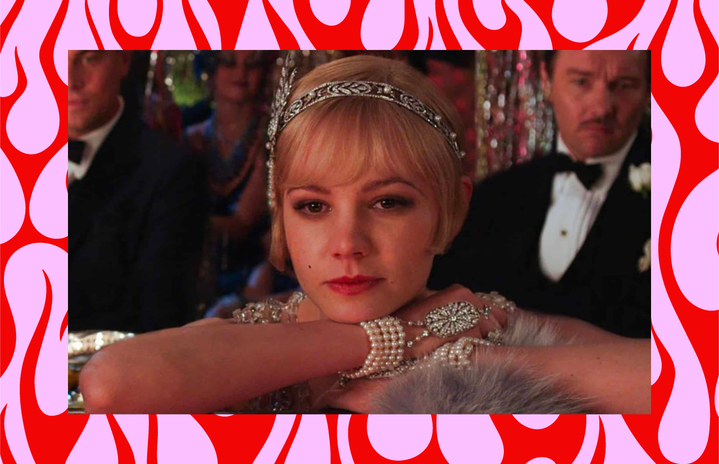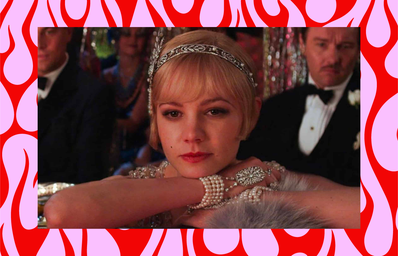The Great Gatsby (2013) is known for three major things—its golden, jazz age aesthetic, the film’s portrayal of New York City in the early 1990s and the loud, over the top, grand display of Gatsby’s wealth, particularly his castle and the glittering parties held in them. Through these, the period drama makes a conscious effort to highlight the class division within the aristocracy of New York City by delving into the demeanour, mannerisms and family backgrounds of the old and the new rich, thus creating a divide between them.
As the narrator of the film, Nick Carraway, starts talking about his past, the viewers, through his lens, are introduced to two fictional neighbourhoods in Long Island, New York. While he lives in West Egg “in a forgotten groundkeeper’s cottage squeezed among the mansions of the newly rich”, his cousin, Daisy Buchanan stays “across the bay in old-moneyed East Egg”. It is, thus, established that East Egg, in the film, is a place where the ones with generational wealth reside and West Egg is for the “nouveau riche”. Since Jay Gatsby, the protagonist of the film, is the next-door neighbour of Carraway, he, right from the start, is placed in a social category which is not the same as the one of his past lover, Daisy.
The “nouveau riche” aren’t just different from the old-moneyed due to when and how they acquired all their wealth. It is also their mannerisms and family names that are constantly discussed and scrutinised within the elite circles of New York to separate them from the upper crust of elites. Perhaps, that is why Carraway, in spite of not being well-to-do, is not dismissed by the Buchanans and the other characters in the film. Gatsby, however, even after flaunting all his wealth through his lavish parties is doubted for who he truly is. In the first ever Gatsby jamboree that Carraway gets invited to, his acquaintance, Jordan Baker, voices her thoughts about their host by stating, “He once told me he was an Oxford man. However, I don’t believe it…I just don’t believe he went there.” Something similar is later expressed by Daisy’s husband, Tom Buchanan when he questions Gatsby mockingly and says, “The man in the pink suit went to Oxford.” Not only are characters like Baker and Buchanan conditioned into associating Oxford with the old rich, but are even quick to judge individuals like Gatsby for the way they carry and present themselves. In this case, it is Gatsby’s pink suit, used as a metonymy for his overall taste in clothing, that is ridiculed by Buchanan.
In addition to disregarding Gatsby’s status as an elite, Buchanan also goes on to show suspicions about his affluence. While attending one of Gatsby’s “glittering parties”, he exclaims loudly, “A lot of these newly rich are just filthy bootleggers.” Alongside that, refers to the party as a “circus” and says, “He (Gatsby) certainly must have strained himself to get this menagerie together.” Gatsby’s efforts to impress who he considers to be the benchmark of refinement are, thus, shrugged off when the grandeur of the celebrations at his residence are viewed as gaudy and wild.
If the characters of Buchanan and Gatsby are compared further, it becomes clear that there is a stark difference in the treatment they receive from the ones around them. Buchanan might be an “idle rich” man who spends all his time either with his mistress or playing polo, but despite that, he is still treated with respect in New York’s high society. When he is introduced as a polo player to a senator by Gatsby, the senator greets him with enthusiasm saying, “Always a pleasure to meet a Buchanan!” Thus, it is not just his money, but even his family name that makes him stand out. Gatsby, on the other hand, does not enjoy that privilege.
To make up for not having an ancestry similar to the Buchanans, Gatsby makes visible efforts to come across as someone who can be perceived as stylish, sophisticated and prosperous by them. This starts with him trying to convince Nick Carraway about his education, lineage and inheritance. Gatsby claims to be “the son of some very wealthy people from the middle west” who are all dead and also says that he went to Oxford because all his ancestors went there. “You know, it’s a family tradition,” he says as he attempts to establish himself as an old-moneyed person. He is so convinced of Carraway not believing him that he makes his business partner, Meyer Wolfsheim, repeat his entire narrative in front of Daisy’s cousin to win his trust. However, in the end, when Gatsby is repeatedly humiliated by Tom Buchanan, Carraway pays him a compliment by saying, “They’re a rotten crowd. You’re worth the whole damn bunch put together.” These, according to Carraway, are the only words of admiration he has ever uttered for Gatsby in front of him.
Even though he is written to be a hardworking, ambitious and self-made man, Gatsby’s personality traits don’t lead to his inclusion in New York’s aristocracy. That disappoints him because not only is he financially loaded, but is also someone whose contributions in the first world war got him medals, turned him into an officer and even earned him a place at Oxford. Thus, when he enters a heated argument with Buchanan in the film, he says, “The only respectable thing about you…is your money…Now, I have just as much as you. That means we’re equals.” To this, Buchanan responds saying, “We’re all different from you…we were born different. It’s in our blood and nothing you do or say or steal or dream up can ever change that.” Gatsby is, thus, reduced to nothingness because the old-moneyed Buchanan argues that nobility is in his blood, a fact that Gatsby is unable to refute.
Alongside the aforementioned, Gatsby’s conduct, throughout the film, is shown to be overly performative. He boasts about his past and achievements in a dramatic manner which makes his stories appear as made-up and wears his wealth on his sleeve. He also uses the term “old sport” quite frequently while talking in order to pass as an educated elite. Turns out, he, in his past, had learned how to dress, act and speak and basically, “play the gentleman” from an old man named Dan Cody whose money he had hoped to inherit. However, during his squabble with Buchanan, he, for a moment, gets out of character and almost attacks his nemesis. This is when the viewers hear Buchanan sarcastically say, “Show us some of those fine Oxford manners.” Gatsby’s loss of calm is all that is needed for Daisy to start viewing him as her inferior once again. All his attempts to be validated by his love interest are, thus, destroyed in a moment solely because she stops viewing him as a gentleman.
The character arc of Gatsby helps us understand that the saying “money doesn’t buy class” was most probably created by the old elites due to their unwillingness to acknowledge the efforts of those who earned all their money, instead of inheriting it. Furthermore, the “nouveau riche” wanting to emulate and impersonate the old rich reveals how unnecessarily selective the high society is capable of being.


